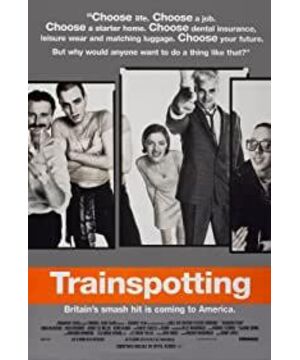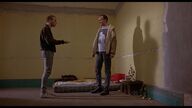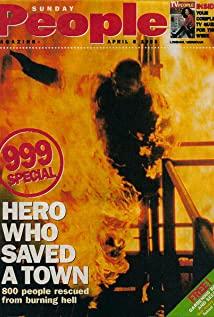Metz said that the difference between the film and the dream is that the expression of its symbols will not be strongly distorted to cause obscurity, but in fact, even such a process that seems to accept no excessive resistance is also subjected to huge resistance. . Mike in "Trainspotting" actually showed from the very beginning that he did not pursue the normal and excellent way of life in real life. What he pursued was the corruption and pleasure of youth. This setting itself defines Mike as an image that completely deviates from the current morality and etiquette. We cannot judge it with our own value judgments, but as an individual, it will still appear from time to time in the process of watching movies. Hope, for example, you must insist on quitting drugs, don't mix with them again, and don't participate in such things. To a certain extent, the reason for such an idea is that the violent impulse and desire to destroy existing in the subconscious of the viewer have just been mobilized, and the fore-consciousness has begun to react to suppress it. Viewers will use the characters in the film as substitutes for themselves in the process of voyeurism, and no matter how the creators prompt before telling the story, it is impossible for us to abandon this stylized substitute. Therefore, our reactions and hopes for the protagonist's behavior are actually judgments made by the ego's preconsciousness. The language system of reality has transformed us so thoroughly that we cannot fully enjoy this "voyeuristic" process. Of course, it is impossible for the film to give up its deeper exploration of the subconscious and our unconscious imagination because of the possible obstacles of the preconscious, but to a certain extent it is precisely because we know the resistance of certain obstacles that will appear on the ontology. The behavior of the film is still in the digging of the unconscious imagination, which will bring a more pleasant feeling of release, because we not only agree with the main character of the movie to resist, but also fight against the solidified thinking system in the development of this story. The sharp impact experience brought about by the two confrontations brings us a sense of satisfaction. In other words, the process of watching this kind of violent aesthetics of movies is itself a kind of violence, but it is just a kind of violence that cannot be expressed in reality, and we are imprisoned and rigid in the thinking system. This kind of violent pleasure is different from the violence on the image, which is just a substitute for imagination. The shock violence brought by the viewing behavior itself is directly generated on our spiritual level, and it does not exist any barriers and language system conversion process. Missing, and thus appear more complete and more powerful.
Trainspotting is full of scenes of violence, drugs, sex, and filth, but why is it defined as a literary film? In fact, there is no precise definition for the definition of literary film, but it does not belong to the classic Hollywood film model. It is impossible to determine what it promotes, or whether it promotes it. In Trainspotting, Mike initially lived outside the normal life with a disdainful attitude, but in the final ending, he returned to the normal and perfect life we thought was successful with a playful betrayal. Is this the right choice? No aspect is shown, and it is made all the more ironic by returning to the so-called hopeful life of reality in a betrayal villain way. Value judgment is invalid in such a film. We know that Hollywood's model is to penetrate some values through the process of voyeurism, which directly affects the peace of society and the stability of government. In the ending of "Trainspotting", the barriers of our real world are completely broken. There is no right, no wrong behavior is the behavior itself, and there is no need to add too much judgment to it. This is an attitude without attitude, showing a slightly postmodern deconstruction thought. To a large extent, the success of Trainspotting includes the splendor of the ending, with no judgment, no crusade, and certainly no praise. The ambiguous attitude gives the audience maximum self-interrogation, and it is not the same as to which side wins the violent confrontation in the subjective consciousness of watching the movie. Therefore, such an open-ended torture directly and profoundly transfers the question from Mike to each movie-watching subject, directly mobilizing the audience's emotional experience, and even expressing a kind of philosophical and aesthetic thinking. Literature and art is a strange definition, but its use in train guessing is probably because of its magnificent lens, imaginative expression, and no fixed ending, which is contrary to normal stylized commercial films. In this film, violence, evil, vulgarity, all the bad things that are defined as sins in reality are ambiguous in expression, with a non-judgmental attitude, or even an antagonistic attitude , which may become a way of occurrence of literature and art. Because literature and art is not a certain value given to us, it is either an emotion, or a reflection, or a trouble, but on the whole it will bring us some overlapping experiences that make these problems haunt the viewer. In his mind, the violence in this situation is naturally literary.
View more about Trainspotting reviews











